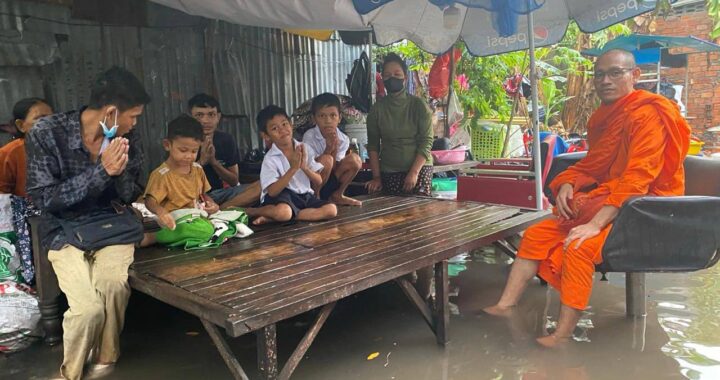The three vulnerable sibling boys were not registered to attend primary school, even if they were school-age, due to a lack of birth certificates. They reside in village #20, Sangkat Srah Chak, Khan Doun Penh, Phnom Penh, with a 58-year-old grandmother who immigrated from one of the rural provinces for construction work opportunities in Phnom Penh city in 1989. Without a home and the budget to hire a room because of the income crisis, the family stayed on the land of a private enterprise in a slum in the backyard of a neighbour’s house beneath the tent. Only two members can make income by selling sour fruits on the street, whereas the grandma and her oldest son are very sick. The revenue from the sour fruits is unstable and insufficient for family meals and house rental; that’s why they take some time out a private loan with a high interest rate of up to 50%, forcing them to become increasingly poor, unable to devote cash for housing rental and children’s schooling. If it rained, they could not sell their sour fruits, so they would entirely lose their capital from purchasing the fruits from the whole seller, and as a consequence, they would have to add up the loan for the next sale. Seeing the neighbour children in the same situation attending the SCC community school in the Boeung Kak slum area, the grandmother came to register the three. Following negotiations with the SCC community school supervisor, the three vulnerable children, ages 5 to 9, are yet to be enrolled in public school due to a lack of a birth certificate. SCC and Mrs. Christ, an Australian child sponsor, visited to help children get into primary school, get nutrition support, and settle in properly.
Two achievements for the impoverished 3-boy family simultaneously include better living conditions and access to education. SCC noticed that the poor living conditions, poor health, and food shortages all pose significant barriers to the three’s access to education. The main issue was a loan with a high interest rate, which produced major financial difficulties for this family, although they worked hard to earn money. SCC with Christ opted to emphasise support other than children’s education, such as room rental and free of private debts for the family. To begin with, SCC paid for a two-month room rental and food provided—80 kg of rice and some soy sauce—to provide space/burden and contribute to better health conditions because they were living on company land in the backyard of the resident’s house with no toilet, clean water, under a tent, and flooded due to rain. Next, to avoid them utilising private loans with the highest interest rate, we gave loans with no interest and allowed them to repay based on their flexibility. As a result, they are now debt-free and in better health, so one of the sons who was sick can be offered a job, allowing them to save up money for room rental and daily food on their own. Finally, our project officer, in close collaboration with the local authorities, processes the birth certificates for the three boys and intervenes to register them with the public primary school, as well as providing three sets of new school uniforms (1 set for each child), three school bags (1 bag for each child), three pairs of school shoes (one pair of shoes for each child), 30 notebooks (10 books for each child), and a box of 12 pencils for the entire school year. In short, the three have attended public and CBE schools; in the meantime, their family situation allows them to allocate funds for housing and daily food expenses without incurring debt.
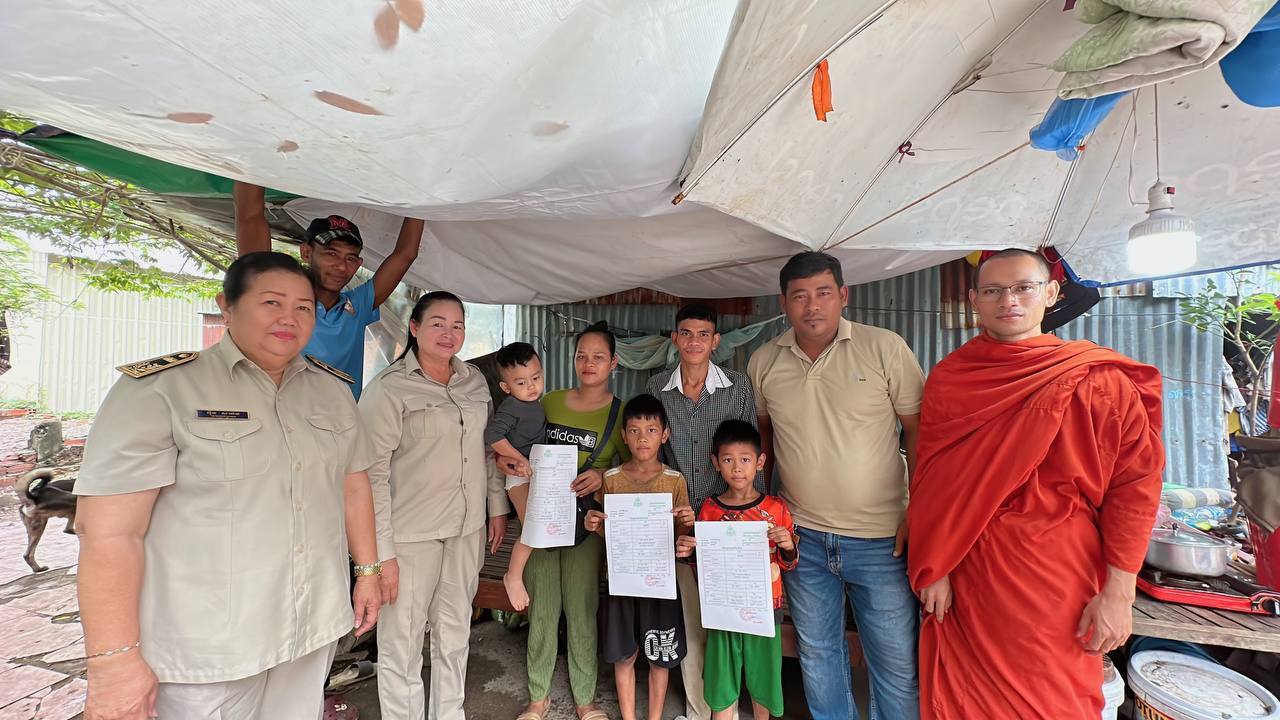
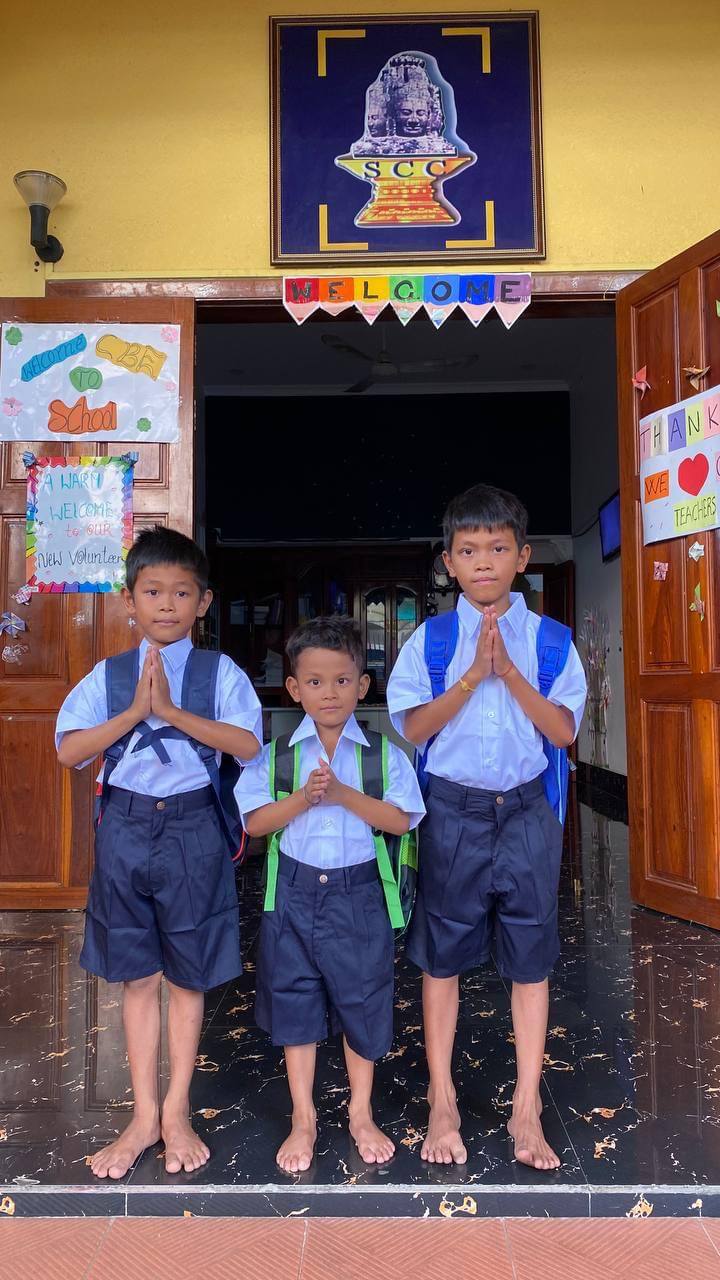
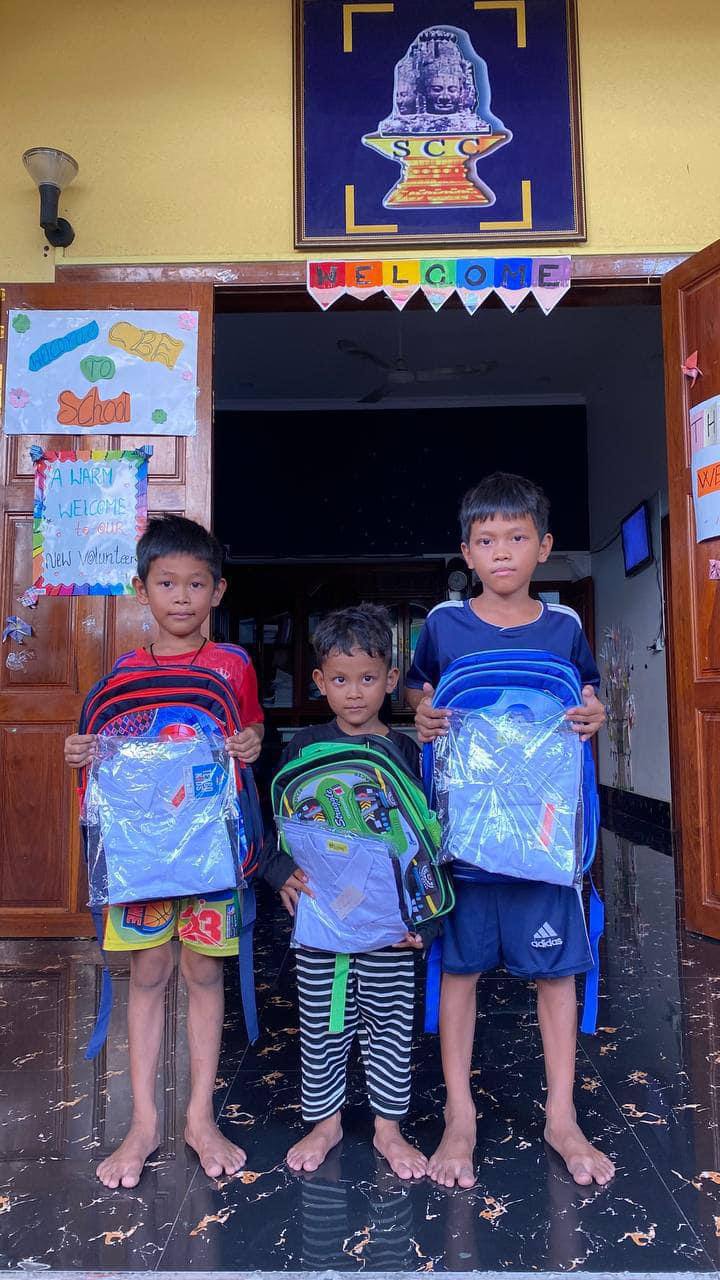
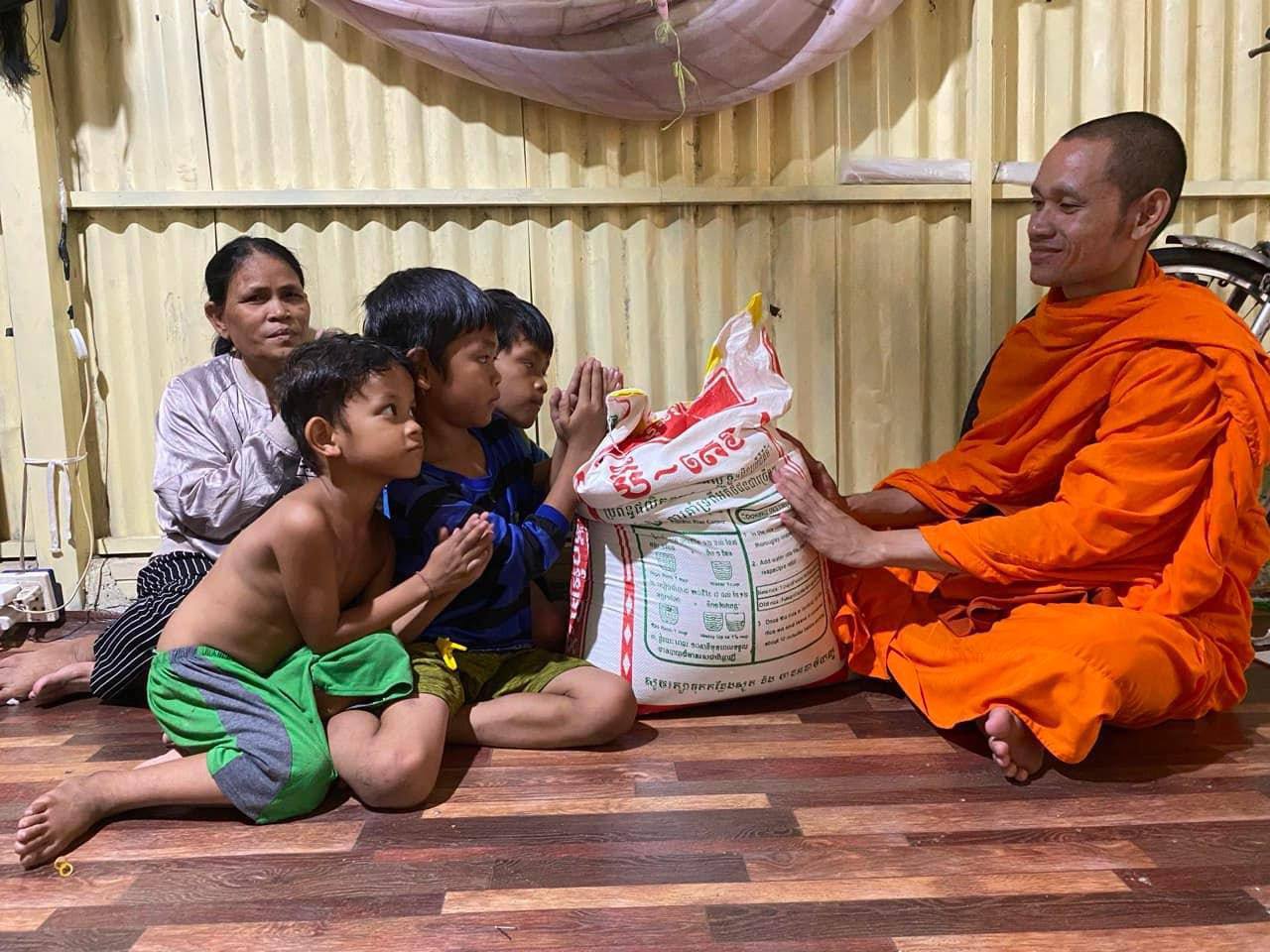
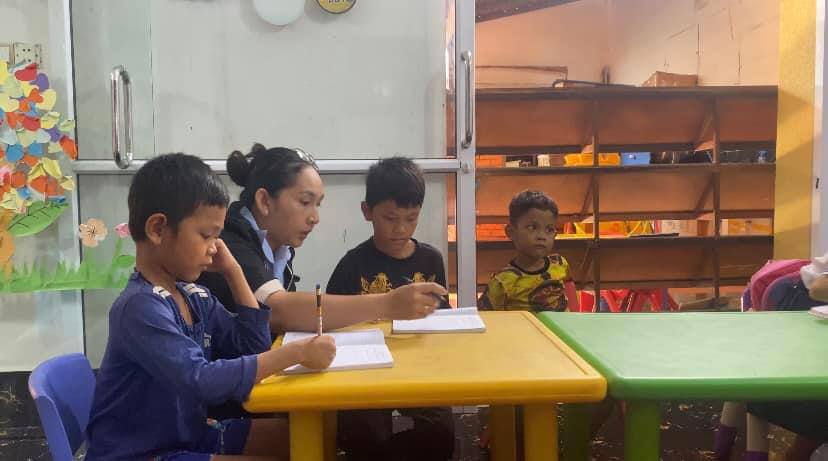
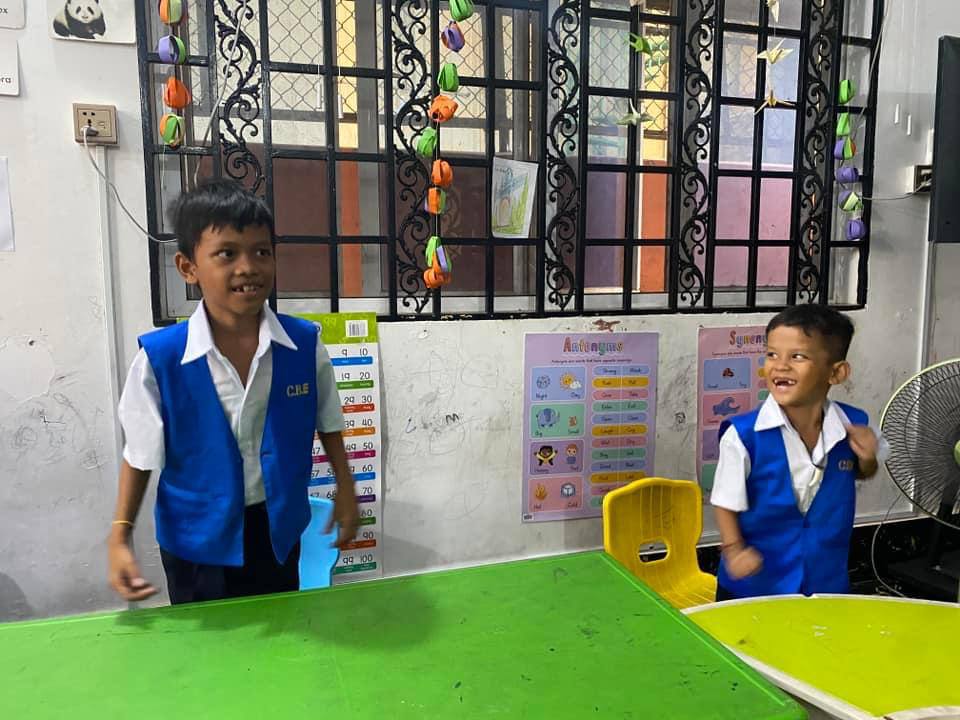
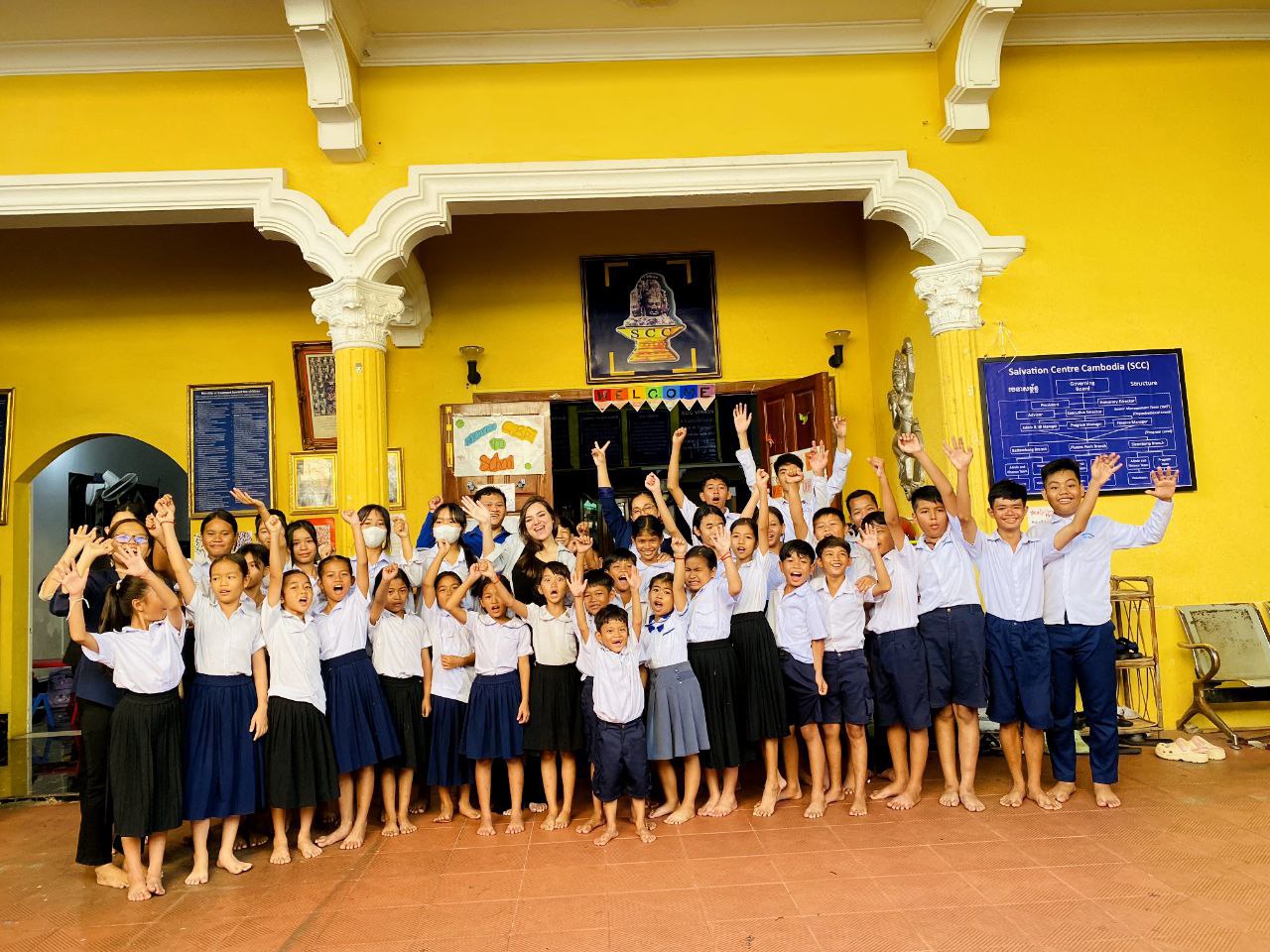
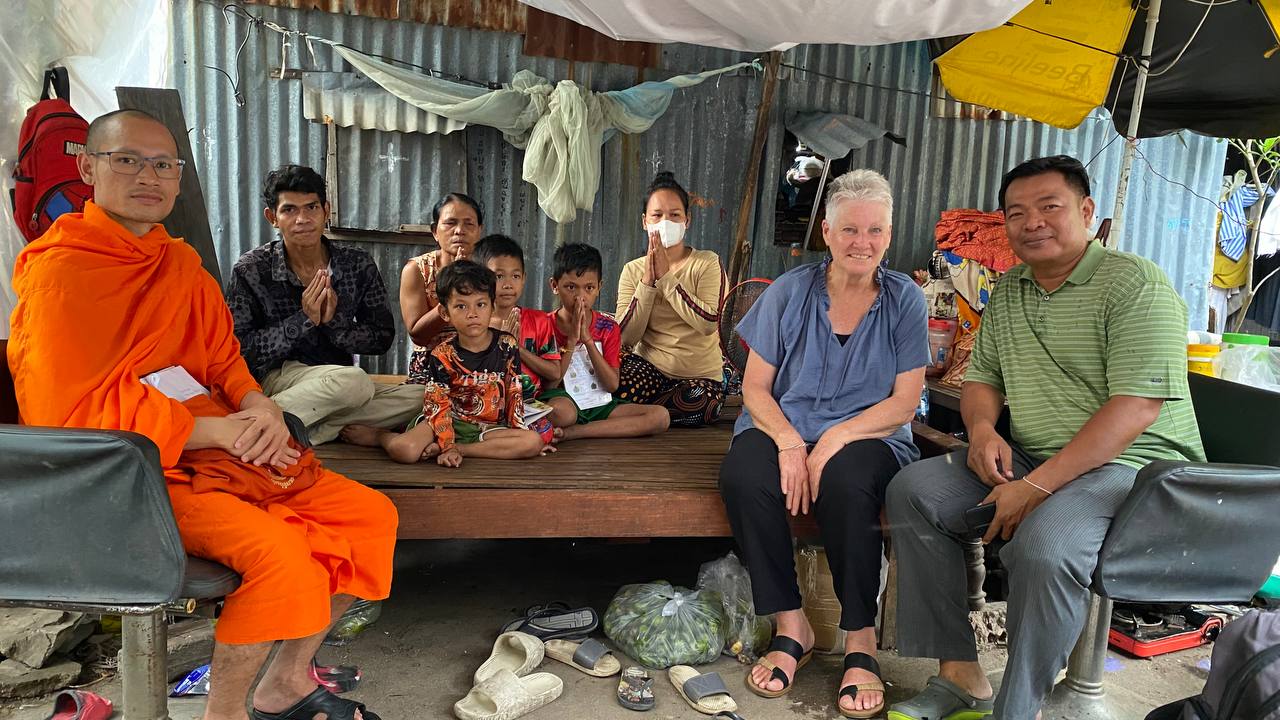
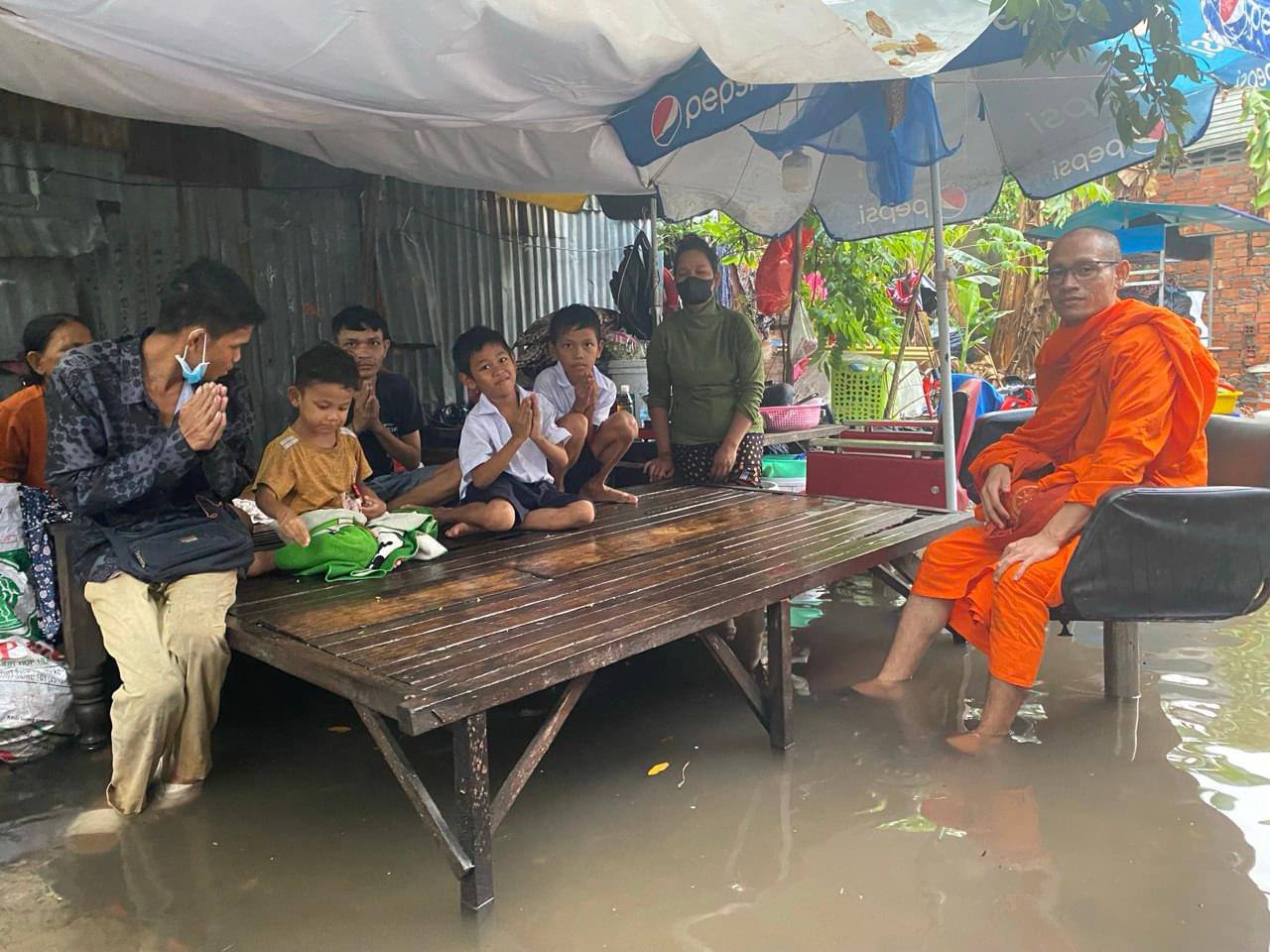
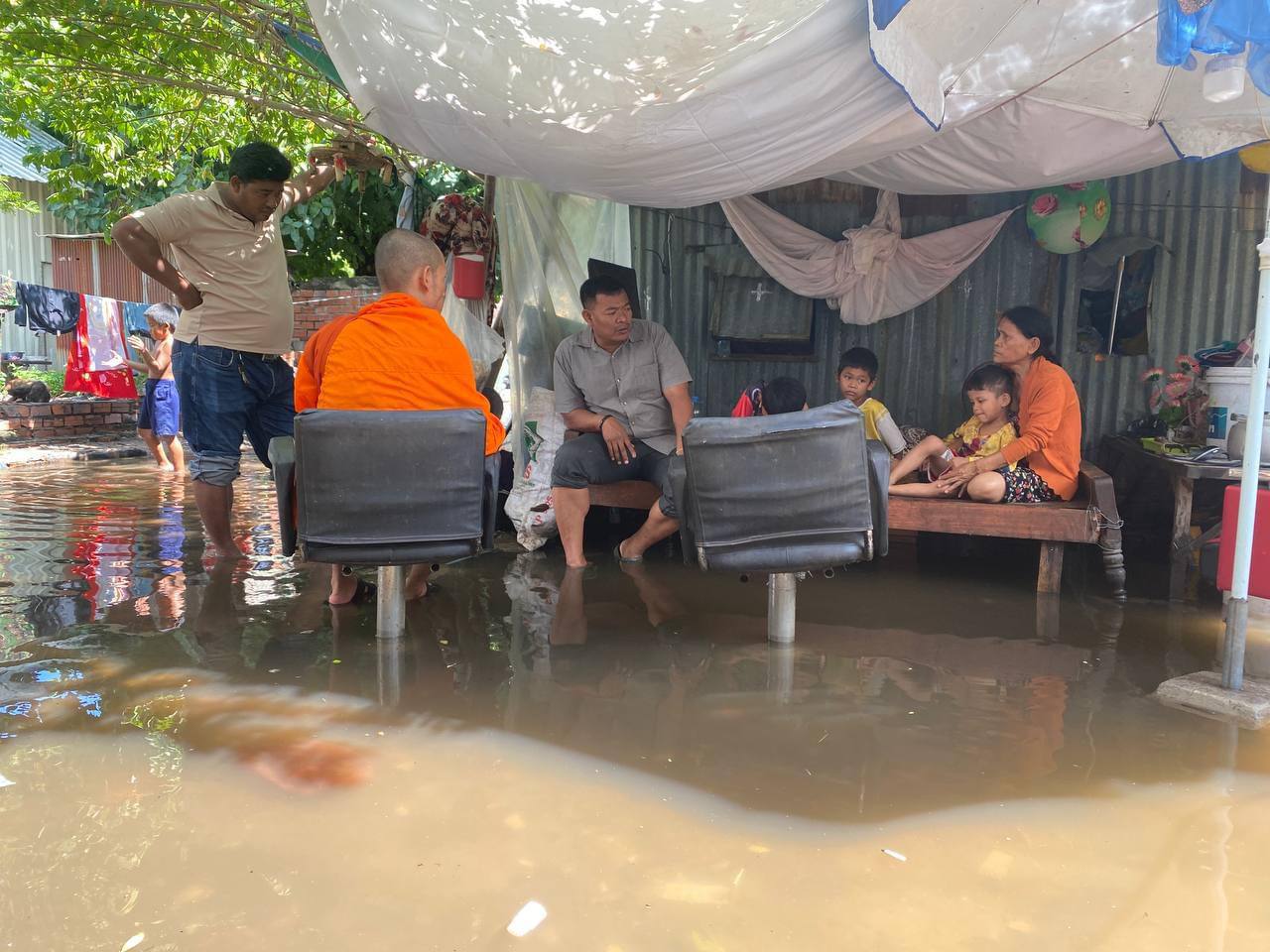 We appreciate your continuous support in keeping the school open for these at-risk kids. This will guarantee that we finish the task of giving disadvantaged children the education they require to enhance their future, on behalf of our children at our organisation and the communities we serve.
We appreciate your continuous support in keeping the school open for these at-risk kids. This will guarantee that we finish the task of giving disadvantaged children the education they require to enhance their future, on behalf of our children at our organisation and the communities we serve.

